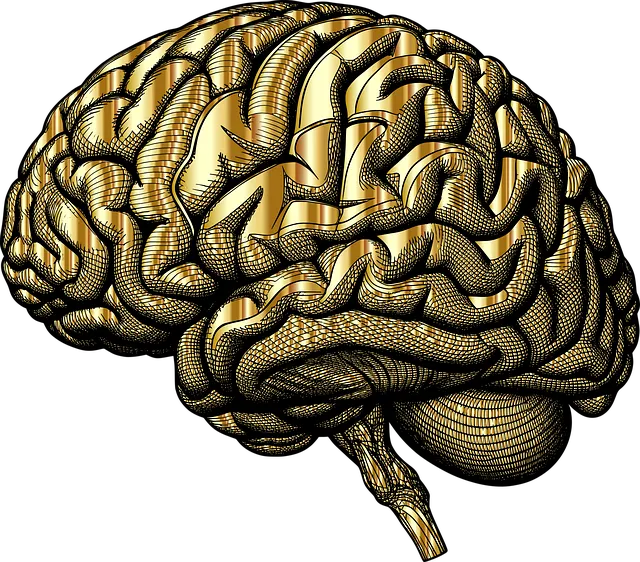The Centennial Kaiser Permanente Mental Health Access Center focuses on mental health literacy through comprehensive education programs, interactive workshops, and community discussions, empowering individuals with tools for navigating life challenges. Their strategic approach includes tailored outreach to diverse populations, cultural competency training for healthcare providers, and a holistic curriculum that balances theory with practical exercises. Evaluated through robust metrics, the center's initiative improves access, enhances patient outcomes, and promotes community well-being, demonstrating its comprehensive and effective contribution to regional mental health.
Mental health education programs play a pivotal role in fostering well-being and tackling stigma. This article explores the comprehensive design of such initiatives, focusing on the successful model of the Centennial Kaiser Permanente Mental Health Access Center. We delve into understanding the growing need for mental health literacy, crafting effective curricula, and implementing strategies to engage diverse communities. By examining this initiative’s impact, we gain valuable insights into enhancing mental health support for all.
- Understanding the Need: Unveiling the Impact of Mental Health Literacy
- Program Structure: Crafting a Comprehensive Curriculum
- Implementation Strategies: Reaching and Engaging Diverse Audiences
- Measuring Success: Evaluating the Effectiveness of the Centennial Kaiser Permanente Mental Health Access Center Initiative
Understanding the Need: Unveiling the Impact of Mental Health Literacy

In today’s fast-paced world, mental health literacy has emerged as a crucial aspect of overall well-being. The Centennial Kaiser Permanente Mental Health Access Center has been at the forefront of this movement, recognizing the profound impact that educating individuals on mental health can have on their lives and communities. By designing comprehensive Mental Health Education Programs, the center aims to foster inner strength development and equip folks with the tools necessary to navigate life’s challenges.
These programs go beyond basic awareness; they provide crisis intervention guidance tailored to diverse populations. Through interactive workshops, seminars, and community discussions, participants gain a deeper understanding of mental health issues, promoting early identification and effective coping strategies. The center’s approach underscores the belief that enhancing mental health literacy is not just a personal endeavor but a vital public health initiative, ultimately enriching the social fabric and creating a more supportive environment for everyone, including those facing hidden struggles.
Program Structure: Crafting a Comprehensive Curriculum

Designing a mental health education program requires careful consideration of its structure and curriculum to ensure comprehensive coverage and effectiveness. At the Centennial Kaiser Permanente Mental Health Access Center, we recognize that addressing mental wellness involves equipping individuals with practical tools and knowledge. Thus, our program is meticulously crafted to include a balanced mix of theoretical understanding and hands-on exercises.
The curriculum is structured around key themes such as conflict resolution techniques for healthy communication, resilience building to navigate life’s challenges, and mental wellness journaling exercises for self-reflection and awareness. By integrating these components, we foster an environment where participants not only gain insights into their mental health but also develop practical skills to manage and improve their overall well-being. This holistic approach mirrors the comprehensive services offered at the Centennial Kaiser Permanente Mental Health Access Center, ensuring that our program aligns with industry best practices.
Implementation Strategies: Reaching and Engaging Diverse Audiences

Implementing a mental health education program requires a strategic approach to reach and engage diverse audiences, ensuring its effectiveness and impact. At the Centennial Kaiser Permanente Mental Health Access Center, we recognize that mental well-being is a universal need but can be hindered by cultural barriers and limited access to resources. Therefore, our implementation strategies focus on inclusivity and accessibility.
One key method is through Community Outreach Program Implementation, where we actively engage with local communities, schools, and organizations to deliver tailored education sessions. This approach ensures that information reaches those who may not typically access mental health services. Additionally, Healthcare Provider Cultural Competency Training is an integral part of our strategy. By educating healthcare professionals on cultural sensitivity and diversity, we foster an environment where patients from various backgrounds feel comfortable seeking support, ultimately improving Emotional Well-being Promotion Techniques.
Measuring Success: Evaluating the Effectiveness of the Centennial Kaiser Permanente Mental Health Access Center Initiative

The success of the Centennial Kaiser Permanente Mental Health Access Center Initiative can be measured through a comprehensive evaluation framework that captures its multifaceted impact. This includes assessing the center’s contribution to improving access to mental health services, enhancing patient outcomes, and fostering community well-being. By utilizing a mix of quantitative and qualitative methods, such as survey data from patients and healthcare providers, interview insights from center staff and community partners, and policy analysis reports, researchers can gauge the initiative’s effectiveness in achieving its goals.
Key performance indicators (KPIs) might include tracking wait times for mental health services, patient satisfaction rates, and referral success rates to specialized care. Additionally, examining changes in Mental Health Policy Analysis and Advocacy activities within the community, as well as increased Mental Health Awareness through educational programs and outreach events, provides a holistic view of the center’s contribution to the region’s overall mental health ecosystem.
Mental health education programs, as exemplified by the successful Centennial Kaiser Permanente Mental Health Access Center initiative, play a pivotal role in fostering well-being and breaking down stigma. By combining comprehensive curriculum design, diverse audience engagement strategies, and effective evaluation methods, such programs can significantly enhance mental health literacy and improve access to care. This article has provided a roadmap for creating impactful initiatives that not only educate but also empower individuals to navigate their mental health journeys with greater understanding and resilience.






